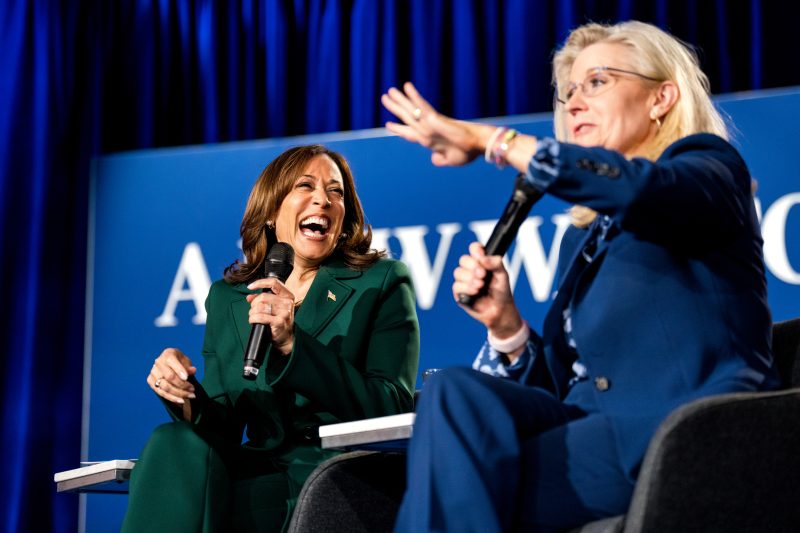Kamala Harris’s Narrow Opening with GOP-Leaning Voters
In a highly polarized political landscape, reaching across party lines to attract voters from the opposition camp can be a challenging task. Kamala Harris, the first female Vice President of the United States, finds herself in a unique position as she seeks to broaden her appeal beyond traditional Democratic constituents and connect with GOP-leaning voters. While Harris has garnered strong support among Democratic and progressive circles, her ability to resonate with conservative-leaning individuals remains a point of contention and opportunity.
One key factor that could facilitate Harris’s bridge-building efforts with GOP-leaning voters is her background as a former prosecutor. Harris’s experience as a tough-on-crime attorney general and district attorney may resonate with conservative voters who prioritize law and order issues. Her track record on criminal justice reform, including advocating for police accountability and working to reduce mass incarceration, could serve as common ground for bipartisan collaboration. By highlighting her efforts to address systemic inequalities within the criminal justice system while also emphasizing her commitment to public safety, Harris could potentially appeal to a broader spectrum of voters, including those on the right.
Additionally, Harris’s focus on economic revitalization and job creation could be another avenue for reaching GOP-leaning voters. As Vice President, Harris has championed initiatives aimed at boosting small businesses, expanding access to affordable healthcare, and supporting workforce development programs. By emphasizing her commitment to fostering economic growth and creating opportunities for all Americans, Harris may be able to attract support from conservative voters who prioritize free-market principles and fiscal responsibility.
Furthermore, Harris’s personal background and identity as a woman of color could also play a significant role in her outreach efforts to GOP-leaning voters. As the first female Vice President and the first African American and South Asian American in this role, Harris’s historic achievement could resonate with individuals who value diversity and inclusion. By sharing her own experiences of overcoming barriers and breaking through glass ceilings, Harris can connect with voters who appreciate resilience, determination, and the importance of representation in leadership.
Despite these potential avenues for building connections with GOP-leaning voters, Harris faces several challenges that could impede her outreach efforts. Her progressive policy positions on issues such as healthcare, climate change, and social justice may alienate conservative voters who hold more traditional views. Additionally, Harris’s partisan affiliation as a Democrat in a polarized political environment may hinder her ability to gain widespread support from GOP-leaning individuals who prioritize party loyalty over individual candidates.
In conclusion, Kamala Harris’s narrow opening with GOP-leaning voters presents both opportunities and challenges as she seeks to broaden her appeal across party lines. By emphasizing her background as a former prosecutor, focusing on economic revitalization, and highlighting her personal narrative as a trailblazer in American politics, Harris can potentially attract support from conservative-leaning individuals. However, navigating the complexities of partisan politics and addressing ideological differences will require strategic messaging and outreach efforts to effectively engage with GOP-leaning voters and build a coalition of support that transcends traditional party lines.
